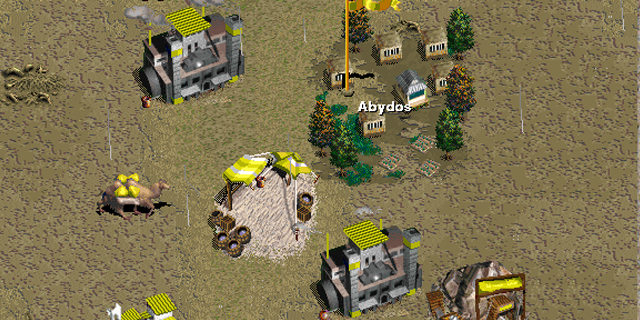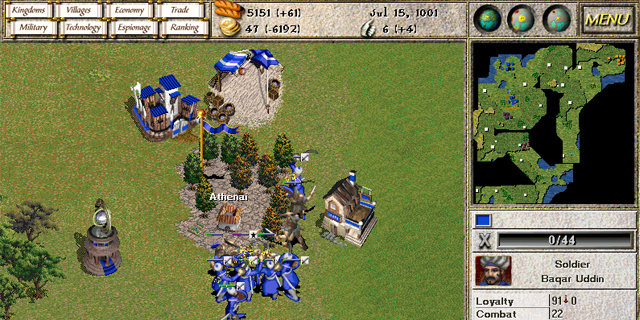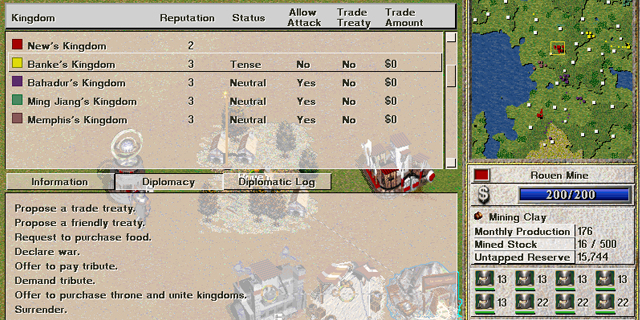
You may find our reputation a little bit exaggerated. We are traders. We haven’t shied from war, but we do not seek it. We just train our workers and exploit our mines better than anyone else. That isn’t a crime, isn’t it? What we want is to see our empire flourish, to grow and prosper.
We are builders. But your kingdom was in our way.
A real-time strategy game by Trevor Chan, a Chinese designer most well known for Capitalism (the purest and harshest game of business simulation I’ve ever played), Seven Kingdoms promised more than a focus on combat. When mixed with a heavy Sid Meier influence, the result is a great game of civilizations in which managing your empire and maintaining diplomatic relations in a shifting landscape is of utmost importance. Killing comes in a distant second while still being a tool and a threat.
There’s a careful balance of priorities that is achieved through great streamlining. This game has no fat! It has scientific research, a complex market economy, combat and ten different abilities for workers. Everything works together seamlessly; it’s one of those games in which all parts matter and interact with each other in subtle but important ways and ends up much better for it.

An example: loyalty. Every city and unit other than yourself, the King, has a loyalty value that fluctuates. If they are currently under the watchful eyes of a general and properly fed, it will rise, allowing you to raise taxes while keeping them content. But warring moves your generals away, increasing your levels of internal dispute and reducing the effectiveness of taxing. How far can you go in your crusade before your empire crumbles? How much of an economic loss will you incur when you save the world from monsters instead of simply fending off their attacks?
There’s more. When in times of conquest you decide to take a village, do you bribe them with gold or use the sword against them? Can an embargo achieved through the diplomacy screen cause the enemy troops to loot and plunder?
They are all great questions, because there are no clear or inconsequential answers. There’s little that can be achieved without sacrifice, and your decisions make a lasting impact in the game’s world, making you think about them no matter the end result.

Rounding the experience is a great set of 38 scenarios that don’t have any tricks, goal changes or scripted events, but just well thought premises. What if you only had your king? How will you face an economic collapse? Can seven different cultures thrive without war under the same rule? Is it better to deal with the monsters, or are humans the real monsters this time? Seven Kingdoms is a game about interesting problems, and they are all very fun ones.
While released in 1997, the game feels timeless, not fitting any particular design trends or being overshadowed by other games or its sequels. In fact, the game still has a dedicated fan base, whose love of the game convinced the developers and the musician to release it for free. I tend to be harsh on you readers when it comes to actually tracking down the games I write about, but this time you have no excuse!



















